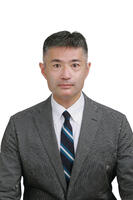Research Experience
-
2022.04-Now
Waseda University Center for Research Strategy
-
2016.04-2022.03
Waseda University Center for Research Strategy
-
2014.02-2016.03
Waseda University Center for Research Strategy
-
2008.04-2014.01
(株)早稲田総研イニシアティブ 社員
(2009年10月 ‐ 2012年9月 早稲田大学研究戦略センターへ出向)
-
2007.09-2008.03
Waseda University Advanced Research Center for Human Sciences
-
2004.09-2007.08
Waseda University School of Human Sciences

